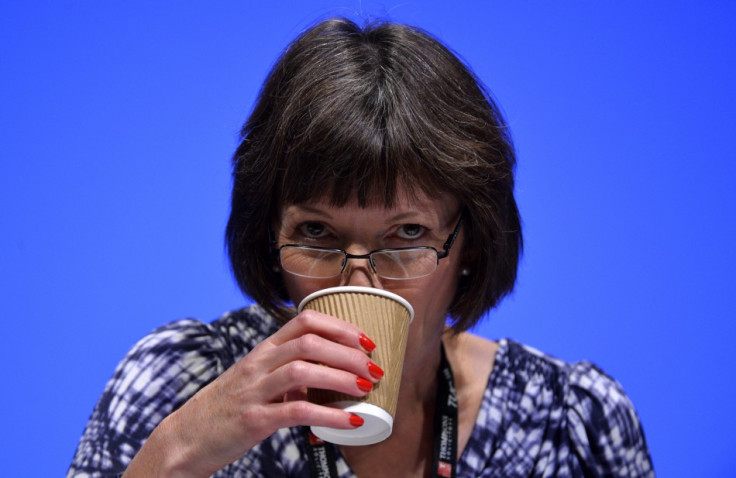TUC's Frances O'Grady: Unions Are Treated With Disdain

Frances O'Grady, general secretary of the TUC, has claimed Britain's trade unions are "treated with disdain" despite being representative bodies of working people across the country.
Delivering her keynote speech to the TUC's annual conference, O'Grady defended unions as the UK's biggest democratic membership movement of ordinary people, outstripping those of the mainstream political parties.
She added that trade unions were once respected across the political spectrum for fighting fascism.
As unions and Labour face criticism from the Conservatives and Liberal Democrats over the closeness of their relationship, particularly in the area of funding, O'Grady claimed union donations to political parties "is the cleanest cash in politics today".
"We are united in defending the basic democratic principle that ordinary people have the right to a political voice," she said, before attacking the Conservatives' financial ties to City of London financiers.
Labour had become embroiled in a seat selection scandal amid allegations that unions use their position as significant funders of the party to try and shoehorn in their favoured candidates as prospective parliamentary candidates for general elections.
The Unite union in particular had been accused of signing up its members to the Labour party so it could rig the selection process in the Falkirk constituency. Unite denied the allegations and an internal Labour party investigation reported that no wrongdoing had been found after "key evidence" was withdrawn.
Attacking the Etonians
O'Grady also launched a wide-ranging attack on Tory austerity policies and said Prime Minister David Cameron is in "hock to those who demand an ever more uncompromising stance".
Developing on the theme of unions and democracy, O'Grady called for "a new economy that puts the interests of working people at its heart".
Furthermore, she attacked the "values of a mythical middle England came to dominate, stretching the United Kingdom to breaking point" which she said had helped contribute to rising inequality since the 1980s.
The issue of zero-hour contracts, falling living standards and what unions can do to help British workers were offered by O'Grady as areas of serious concern for TUC members in modern Britain.
Zero-Hours and Austerity
Despite the controversy around the labour market, with the growing number of temporary work and zero-hours contracts, some argue that such loose arrangements provide the flexibility needed for many employers and workers.
"No one likes the situation where wages are falling in real terms, but we can only move away from this with a return to sustainable growth," said Katja Hall, chief policy director at the UK's biggest business lobbyist, the Confederation of British Industry (CBI).
"Flexibility in the workplace, such as zero-hours and agency working, creates opportunities for those who find it hardest to break into the jobs market, including young people and parents."
Meanwhile Chancellor George Osborne gave a speech in London where he said that the UK economy had turned a corner on the back of improving economic data, which vindicated the austerity programme of public spending cuts the TUC's O'Grady attacked.
"The only sustainable path to prosperity is to reject the old quick fixes and stick to the course we have set," Osborne said.
"We will keep our sights firmly fixed on the future so that we do not shrink from the changes required to build lasting prosperity. Our economic plan does all these things."
© Copyright IBTimes 2024. All rights reserved.






